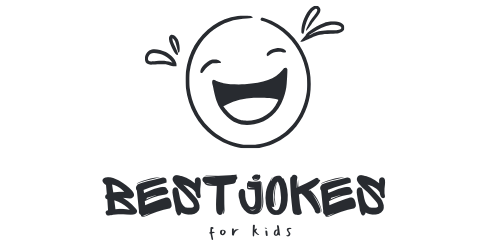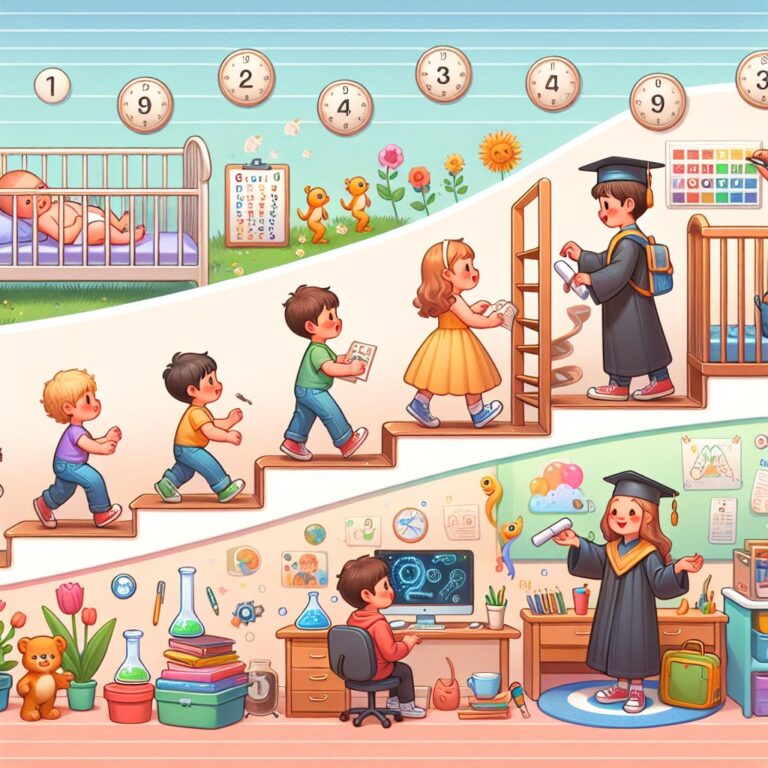Key Takeaways
- Humor in children’s books can make reading a fun and enjoyable activity, fostering a lifelong love for books.
- Introducing humor in reading helps expand a child’s vocabulary and language skills through engaging content.
- Funny books encourage social interaction, boosting confidence as children share jokes and funny stories with peers.
- Laughter promotes critical thinking and problem-solving as kids analyze jokes and understand complex ideas.
- Reading humorous content can reduce stress and improve emotional well-being, creating a positive reading environment.
Discover How Laughter Enhances Reading Experiences
Humor is a powerful tool in a child’s reading journey. Not only does it make the process of reading enjoyable, but it also introduces children to a range of cognitive and social benefits. When kids find a book funny, they’re more likely to engage with it and continue reading. This engagement is crucial for developing a love for reading that lasts a lifetime.
The Role of Humor in Making Reading Fun
One of the biggest challenges parents face is encouraging their children to read. Many children see reading as a chore rather than a fun activity. However, humor can change this perception. When a child laughs at a book, they associate reading with joy and entertainment. This positive association makes them eager to read more.
Moreover, humorous books often contain characters and scenarios that children can relate to, making the stories more engaging. As children laugh at the silly antics of characters, they learn to appreciate storytelling and the written word.
Builds a Positive Association with Reading
Seeing Reading as Enjoyable
When children enjoy what they read, they’re more likely to pick up another book. Humor acts as a bridge, transforming reading from a task to an exciting adventure. This transition is vital for building a positive reading habit. Kids start to see books as a source of fun rather than a burden. For more ideas, explore ways to make reading a daily habit for your kids.
Besides that, humorous books often encourage repeat reading. Children love to revisit their favorite funny stories, which reinforces their reading skills and boosts their confidence. This repetitive reading helps solidify their understanding of language and storytelling. For more ideas on how to foster a love for reading, check out these fun ways to encourage your child to read more.
Role of Joke Books in Reluctant Readers
For reluctant readers, joke books can be a game-changer. These books are typically short and packed with humor, making them less intimidating than longer, more serious texts. Joke books offer quick, enjoyable reads that can capture the interest of even the most hesitant reader. For more ideas, check out using humor to boost your child’s reading skills.
Most importantly, joke books encourage reading aloud. As children share jokes with family and friends, they practice their reading skills in a fun, social setting. This practice not only improves fluency but also helps children build confidence in their reading abilities. For more tips, check out using humor to boost your child’s reading skills.
Improves Vocabulary and Language Skills
Humorous books are not just about laughs; they are a treasure trove of new words and phrases. When children encounter new vocabulary in a funny context, they are more likely to remember it. This is because humor helps to make information more memorable.
Moreover, humorous stories often include playful language, puns, and idioms. These elements challenge children to think about language in new ways, enhancing their comprehension and language skills. Through humor, children learn to appreciate the nuances of language, which is a critical skill for effective communication. For more insights, explore how using humor can boost your child’s reading skills.
Introducing New Vocabulary Through Humor
Humor has a unique way of introducing new vocabulary to children. When kids read funny books, they encounter new words in a context that is both enjoyable and memorable. This context helps them grasp the meaning and usage of new vocabulary more effectively than traditional methods.
For example, a child reading a humorous story about a mischievous monkey might learn words like “prank,” “mischief,” and “hilarious.” The laughter and joy associated with the story make these new words stick in the child’s mind. This process naturally expands their vocabulary without the feeling of a vocabulary drill. To learn more about how humor can enhance your child’s reading skills, check out this article.
Understanding Complex Ideas and Idioms
Humor can also help children understand complex ideas and idioms. Funny stories often play with language in ways that challenge children to think critically. For instance, a book might use a pun or a play on words to convey a joke. To understand the joke, children must consider the multiple meanings of a word or phrase. Learn more about using humor to boost your child’s reading skills.
This exposure to idiomatic expressions and complex language structures enhances a child’s comprehension skills. They learn to recognize that language can have layers of meaning, which is crucial for developing advanced reading and communication abilities. For more ideas on how to encourage reading, explore 10 fun ways to encourage your child to read more.
Boosts Confidence and Social Skills
Reading humorous books doesn’t just build language skills; it also boosts a child’s confidence and social abilities. When children find a book funny, they often want to share it with others. This sharing is a natural way for them to engage socially and develop interpersonal skills. Discover the magical power of laughter in children’s reading.
Sharing Jokes with Others
Sharing jokes from a book with friends or family members is a delightful social activity. It encourages children to express themselves and communicate effectively. As they tell a joke, they practice their speaking skills and learn to gauge their audience’s reactions. For more ideas on how to integrate humor into reading, check out using humor to boost your child’s reading skills.
Moreover, the positive feedback from making others laugh boosts a child’s self-esteem. They feel a sense of accomplishment and joy in bringing happiness to others, reinforcing their confidence in social settings. For parents looking for ideas to encourage reading, here are 10 fun ways to encourage your child to read more.
Practicing Social Interactions with Joke Books
Joke books, in particular, provide an excellent platform for practicing social interactions. These books are designed to be shared, making them ideal for group reading sessions. As children read jokes aloud, they learn to take turns, listen actively, and respond appropriately. For more ideas on engaging your child with humor, explore our article on using humor to boost your child’s reading skills.
For example, a child might read a joke from a book and wait for their friends to react before explaining the punchline. This interaction helps them develop patience, empathy, and conversational skills. In this way, humorous reading materials serve as valuable tools for social learning.
Additionally, humor in reading can help shy or introverted children come out of their shells. The shared experience of laughter can break down social barriers and create a sense of camaraderie among peers. For more insights, explore the magical power of laughter in children’s reading.
Encourages Critical Thinking and Problem-Solving
Humor isn’t just about laughs; it encourages critical thinking and problem-solving. When children read a joke, they often have to think about why it’s funny. This process involves analyzing language, context, and sometimes even cultural references. For more insights on how humor can benefit children’s reading, check out this article on the magical power of laughter.
For instance, a joke that plays on a well-known phrase requires children to recognize the original phrase and understand how the joke twists its meaning. This analysis fosters critical thinking skills as children learn to identify patterns and make connections. For more ideas on how to encourage reading, check out these fun ways to encourage your child to read more.
Analyzing Language and Context
Humor often relies on wordplay and context, challenging children to think about language in new ways. When a joke involves a pun, children must understand the dual meanings of a word and how they fit into the joke’s context. To explore more on this topic, consider using humor to boost your child’s reading skills.
This analysis of language and context helps children develop a deeper understanding of how words work together to create meaning. It encourages them to think beyond the literal and explore the subtleties of language, as highlighted in the magical power of laughter.
Thinking Beyond the Literal Meaning
Many jokes require children to think beyond the literal meaning of words. For example, a joke that involves a metaphor or an exaggeration pushes children to interpret language creatively. This kind of thinking is essential for problem-solving, as it encourages children to approach challenges from different angles. For more insights on this, check out the benefits of sharing jokes as a family.
By engaging with humor, children learn to embrace ambiguity and uncertainty, skills that are valuable in both academic and real-world settings. Humor teaches them that not everything has a straightforward answer and that sometimes, the best solutions come from thinking outside the box. For more ideas on how to integrate humor into your child’s learning, check out these fun reading activities for kids.
Reduces Stress and Boosts Emotional Well-Being
Reading humorous books can significantly reduce stress and improve emotional well-being. Laughter is a natural stress reliever, and when children find joy in reading, it creates a positive and relaxing environment. This environment is crucial for emotional development and mental health. For more insights, check out the magical power of laughter in children’s reading.
Humor as a Natural Stress Reliever
When children laugh, their bodies release endorphins, the “feel-good” hormones. These hormones help reduce stress and promote a sense of happiness and relaxation. By incorporating humor into reading, children can experience these benefits while also enjoying the stories they read. For more ideas, explore fun reading activities for kids.
Building Bonds through Shared Laughter
Humor also helps build bonds between children and their peers, as well as with family members. Sharing a funny story or joke can create a sense of connection and understanding. This shared laughter strengthens relationships and fosters a supportive social environment.
For example, reading a humorous book together as a family can turn into a cherished bonding activity. The shared experience of laughter brings everyone closer and creates lasting memories. These positive associations with reading can encourage children to seek out more books and continue their reading journey.
Conclusion
Incorporating humor into your child’s reading routine is a powerful way to enhance their reading experience. It not only makes reading enjoyable but also provides numerous cognitive, social, and emotional benefits. By choosing humorous books, you can help your child develop a lifelong love for reading.
Summary of Humor’s Benefits in Reading
Humor makes reading fun, expands vocabulary, boosts confidence, encourages critical thinking, and reduces stress. These benefits create a well-rounded reading experience that supports a child’s overall development. As children engage with funny books, they learn valuable skills that extend beyond the pages of a book. For more tips, explore using humor to boost your child’s reading skills.
Furthermore, humor helps children navigate complex emotions and situations. By laughing at the challenges faced by characters in a story, children learn to cope with their own difficulties in a healthy and positive way. For more insights, explore the magical power of laughter in children’s reading.
Encouraging the Use of Joke Books
To make reading a fun and engaging activity, I recommend incorporating joke books into your child’s reading routine. These books provide quick and enjoyable reads that can capture a child’s interest and motivate them to read more. Joke books are particularly effective for reluctant readers, as they offer a low-pressure way to practice reading skills. For more ideas, check out these fun ways to encourage your child to read more.
By sharing jokes with friends and family, children can also develop their social skills and confidence. This practice encourages them to express themselves and communicate effectively, both essential skills for their future success. For more insights, check out the benefits of sharing jokes as a family.
Frequently Asked Questions (FAQ)
Q: How can I find humorous books that are appropriate for my child’s age?
A: Finding the right books can be challenging, but there are many resources available to help. You can explore lists of best gifts to encourage reading for kids, which often include age-appropriate humorous books.
A: Look for books that match your child’s reading level and interests. Many bookstores and libraries have sections dedicated to children’s humor, where you can find a wide range of funny books suitable for different ages. For more tips, explore using humor to boost your child’s reading skills.
Q: What if my child doesn’t find the book funny?
If your child doesn’t find the book funny, try exploring fun ways to encourage your child to read more by incorporating different genres or interactive activities that might capture their interest.
A: Humor is subjective, and not every book will appeal to every child. Encourage your child to explore different genres and styles of humor until they find what they enjoy. You can also read books together to discover what makes your child laugh. For more ideas, check out ways to make reading a daily habit for your kids.
Q: How often should I include humorous books in my child’s reading routine?
Including humorous books in your child’s reading routine can have numerous benefits. If you’re curious about the positive effects of laughter in children’s literature, check out this insightful article on the magical power of laughter.
A: Try to incorporate humorous books regularly, but balance them with other types of literature. This variety ensures that your child develops a well-rounded reading habit and experiences different writing styles and themes. For more ideas, check out these tips on using humor to boost reading skills.
Q: Can humorous books be educational? Yes, they can! Humorous books not only entertain but also engage children in a way that makes learning enjoyable. By incorporating laughter into reading, children can develop a love for books and improve their literacy skills. For more insights, check out these ways to boost your child’s reading skills with humor.
A: Absolutely! Humorous books often contain valuable lessons and insights. They can introduce new vocabulary, teach problem-solving skills, and provide social and emotional learning opportunities. For more on this, check out how using humor can boost your child’s reading skills.
Q: How can I encourage my child to share jokes from books? One effective way is to integrate humor into their reading routine. You can explore fun ways to encourage your child to read more and make it a joyful experience.
A: Create a fun and supportive environment where your child feels comfortable sharing jokes. Encourage them to read aloud and praise their efforts, which will build their confidence and make them more eager to share.
Including humor in your child’s reading routine can make the experience more enjoyable and engaging. By incorporating funny stories or jokes, children are more likely to develop a love for reading. If you’re looking for ways to enhance your child’s reading habits, consider using humor to boost your child’s reading skills. This approach not only makes reading fun but also helps improve comprehension and retention.







One Comment